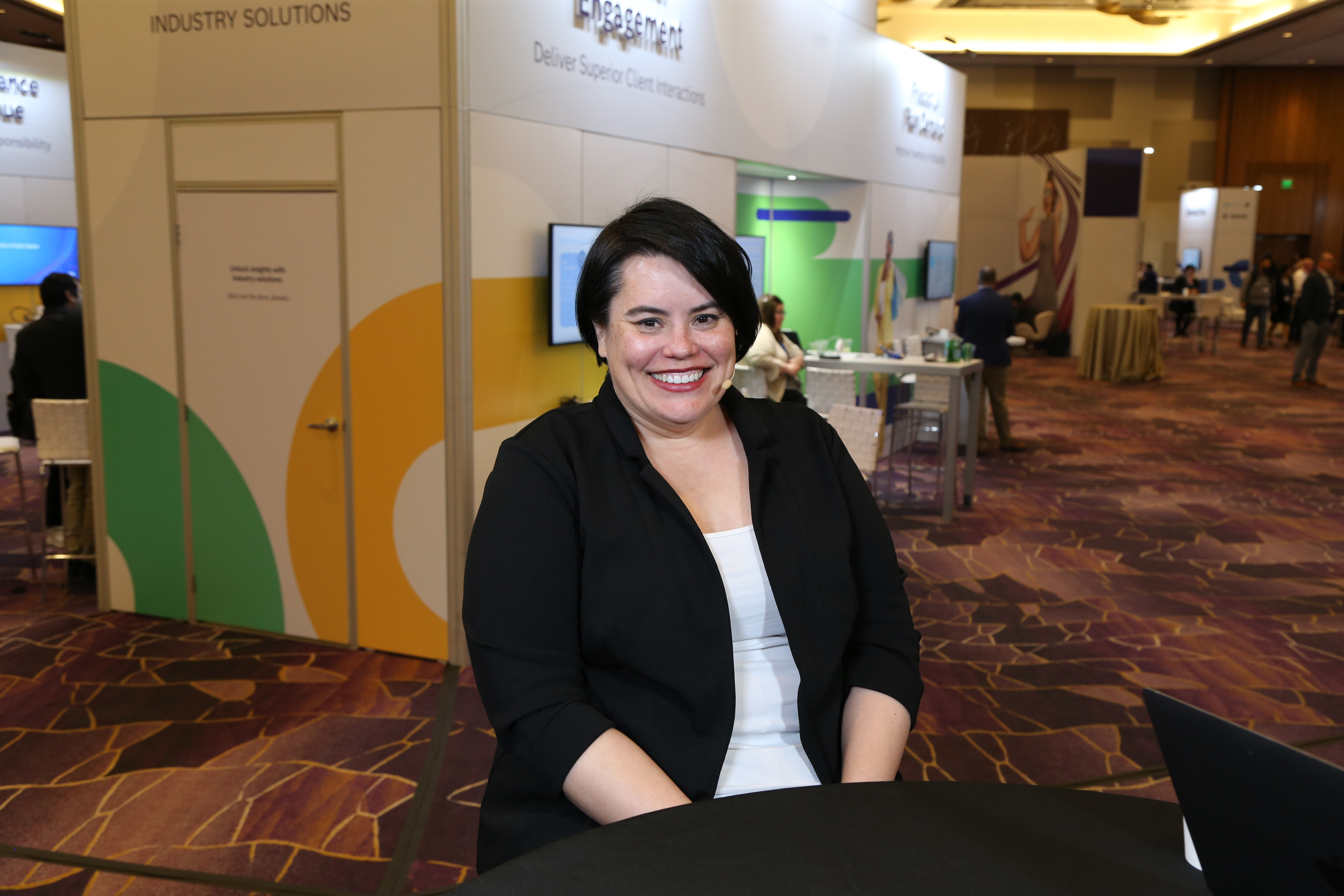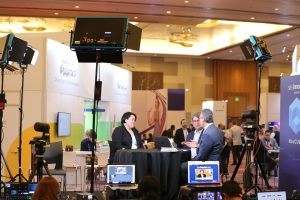 AI
AI
 AI
AI
 AI
AI
Artificial intelligence in the workplace enhances operational efficiency, accelerates decision-making and drives innovation in products and services. Research on the coexistence of workers and AI in the workplace, however, continues to develop.
It is important to be mindful of using the right language and setting realistic expectations when discussing AI applications to avoid detrimental effects on society and organizations, according to Kimberly Nevala (pictured), strategic advisor at SAS Institute Inc.
AI such as ChatGPT may have access to a lot of knowledge, but it’s important to remember that it’s not always right, especially when it comes to giving advice in specific areas such as healthcare or social services.
“People are going to be talking … about this push-pull or maybe the tension that’s happening right now as we see a vast evolution and explosion on the regulatory front, and that question of whether regulation stifles innovation,” Nevala said. “My perspective is regulation doesn’t stifle innovation; regulation stifles harm. AI is a portfolio. Like anything else, it’s a portfolio of tools. Each of those tools has its own capabilities their own limitations. For me, it’s really more about are we being mindful about when and where we are applying the right tool to the right application and putting the guardrails around it.”
Nevala spoke with theCUBE Research’s John Furrier and Dave Vellante at SAS Innovate, during an exclusive broadcast on theCUBE, SiliconANGLE Media’s livestreaming studio. They discussed the impact of AI on human work, skills and language and how to use the right language and set realistic expectations to avoid detrimental effects on society and organizations. (* Disclosure below.)

TheCUBE Research analysts discuss the impact of AI on human work, skills and language.
Language models set unrealistic expectations for perfect answers and require additional work to implement effectively, as they are text synthesizers and not knowledge management systems, Nevala explained. The role of the workplace and workforce expectations will change with the potential for disruptive enablers, according to Nevala. Productivity and efficiency improvements must be balanced with consideration for the impact on human workers and long-term business innovation.
“One of the things I think that’s interesting when we look at something like a large language model — and we have this expectation that it’s going to spit out an answer that is perfect — it also sets this expectation that there’s very little work required, even today, to be able to implement that system in a productive way,” Nevala said.
The impact of new work trends may lead to a shorter work week, but the removal of undesirable jobs may not necessarily lead to increased happiness, she added. The impact of AI on infrastructure and operations will change the role of leadership to focus on managing humans as a resource and providing opportunities for development.
“It’s about understanding how the human perceives and interacts with it and its limitations. Also making sure that we’re designing processes and services that take both of those into account.” Nevala said. “We cannot just look at the process and say, at step B, insert AI to provide the output, and then continue with your regular process. You have to redesign the business process and the business service. I don’t think this will impact a whole lot, to be quite honest.”
Here’s the complete video interview, part of SiliconANGLE’s and theCUBE Research’s coverage of SAS Innovate:
(* Disclosure: SAS Institute Inc. sponsored this segment of theCUBE. Neither SAS nor other sponsors have editorial control over content on theCUBE or SiliconANGLE.)
THANK YOU